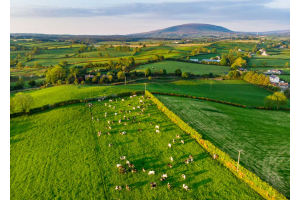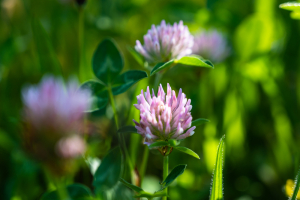Back to Top
Monthly Archives: January 2024
-
Posted: January 29, 2024Read more
- Nitrogen Fixation: Red clover is a leguminous plant, capable of forming a symbiotic relationship with nitrogen-fixing bacteria. This process converts atmospheric nitrogen into a form that plants can use, thereby enriching the soil with nitrogen. This makes red clover an excellent green manure or cover crop.
- Nutrient Recycling: The nitrogen fixed by red clover becomes available to other plants when the clover is incorporated into the soil or left as mulch. This helps improve overall soil fertility.
- The dense root system of red clover helps bind soil particles together, reducing the risk of erosion. This is particularly beneficial on sloping or vulnerable soils.
- Red clover can compete with and suppress weed growth. Its vigorous growth and dense foliage shade out weeds, reducing the need for herbicides and promoting a healthier, weed-free environment.
- Red clover attracts pollinators such as bees with its nectar-rich flowers. Planting red clover can contribute to the overall biodiversity of an area by supporting pollinating insects.
- Red clover is a nutritious forage crop for livestock. It is often included in pasture mixes as it provides a good source of protein for grazing animals.
- Introducing red clover into crop rotation systems can break disease and pest cycles, as different crops have varying susceptibility to specific issues. This can contribute to sustainable and environmentally friendly agriculture practices.
Buy Red Clover Silage Mixture







